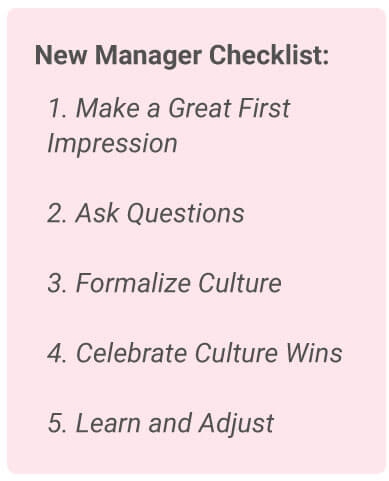
New Manager Checklist for Creating a Powerful Culture
January 3, 2022
|
Logan Mallory

1 - Make a Great First Impression with Your Introduction:

2 - Ask Lots of Questions:
3 - Formalize Your Team Culture:
4 - Celebrate When People Live the Culture:

5 - Learn and Adjust, But with Intention:
About the Author

Logan Mallory is the Vice President of Marketing at Motivosity. He has held roles previously at LogMeIn, Jive, and Workfront. Logan writes and speaks on leadership, culture, marketing, and HR topics. He is an adjunct professor at BYU's Marriott School of Business. Logan lives with his family in Utah, and has deep ties to Michigan, Washington, and Texas.
Learn More
Learn More






